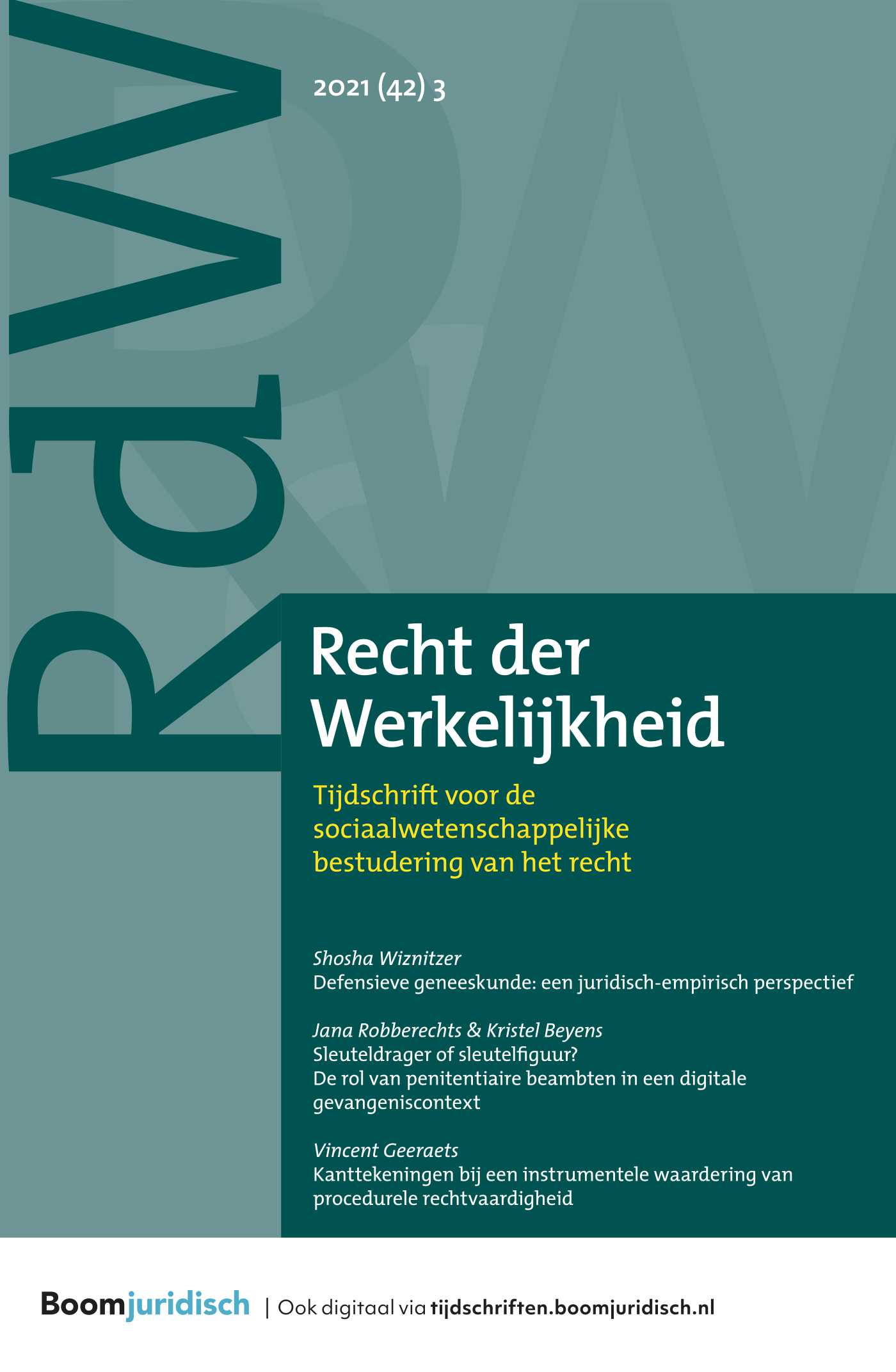|
Het Hof van Justitie van de Europese Unie heeft baanbrekende uitspraken gedaan, vooral als gevolg van prejudiciële vragen van nationale rechters op grond van art. 267 VWEU. Het zijn vooral niet-verwijzingsplichtige lagere rechters geweest die voor deze aanvoer hebben gezorgd. Dit artikel onderzoekt hoe dit kan worden verklaard en kijkt naar de motieven van Nederlandse lagere rechters om al dan niet prejudiciële vragen te stellen aan het HvJ. Het doet dit op basis van interviews met 22 rechters en een uitgebreide juridische analyse van uitspraken. Dit artikel toont aan dat met name pragmatische en praktische overwegingen een rol spelen bij het besluit om te verwijzen. Daarnaast laat dit artikel zien dat er meer verschillen zijn binnen een lidstaat dan tussen lidstaten onderling, met name tussen gerechtelijke instanties en individuele rechters. |


Recht der Werkelijkheid
Meer op het gebied van Algemeen
Over dit tijdschriftMeld u zich hier aan voor de attendering op dit tijdschrift zodat u direct een mail ontvangt als er een nieuw digitaal nummer is verschenen en u de artikelen online kunt lezen.
| Redactioneel |
Hoe rechtssociologische en andere inzichten de ‘garbage can’ van besluitvorming niet hoeven missen |
| Auteurs | Dr. Carolien Klein Haarhuis |
| Auteursinformatie |
| Artikel |
|
| Trefwoorden | Prejudiciële procedure, Hof van Justitie van de Europese Unie, Nationale rechters, Motieven om te verwijzen, rechtspolitiek |
| Auteurs | Dr. Jasper Krommendijk LLM |
| SamenvattingAuteursinformatie |
| Artikel |
Empiricism as an ethical enterprise. On the work of Erhard Blankenburg |
| Trefwoorden | Empiricism, Erhard Blankenburg, mobilization of law, legal instruments, problems and disputes |
| Auteurs | Prof. dr. Pieter Ippel |
| SamenvattingAuteursinformatie |
|
This article gives an interpretation of the empirical work of the well-known sociologist of law Erhard Blankenburg, who passed away in the Spring of 2018. He conducted interesting and intelligent research on the process of ‘mobilization of law’. The thesis of this article is that Blankenburg’s empirical approach is actually guided and stimulated by normative considerations. A complete and coherent picture of the concrete utilization of legal instruments shows that ‘alternative’ ways of dealing with problems and disputes are often morally preferable as they are inspired by a realistic assessment of persons-in-a-social-context. |
| Artikel |
The effective public enforcement of cartels: perceptions on the functioning of the objection procedure and the reality |
| Trefwoorden | Dispute resolution, Objection procedure, Cartel enforcement, Administrative law, Stakeholder interviews |
| Auteurs | Mr. Annalies Outhuijse LLM |
| SamenvattingAuteursinformatie |
|
Companies fined for infringing the cartel prohibition are denied access to the courts until the competition authority has reviewed its fining decision in the objection procedure. Several stakeholders have been negative about the functioning of this objection procedure in case of cartel fines, including because of its limited ability to resolve disputes and the cost and length of the procedure. In light of the discussions on the effectiveness of this objection procedure, this article analyses the ability of the cartel objection procedure to resolve disputes on basis of an analysis of the decisions on objection, as well as interviews with the parties involved in the objection procedure and a study of relevant literature. Previous studies have shown that the success of the objection procedure, regarding dispute resolution, depends on the nature of the dispute, the reason that the objection is made and the organisation of the procedure. Reviewing the data which was gathered through the interviews and case analysis with the knowledge of these factors influencing the success of the objection procedure, the article concludes that these previously carried out studies can explain the limited ability of the cartel objection procedure to resolve disputes. |
| Recensies en signalementen |
Een gewichtig paradigma: we zijn gevaarlijk dik en daar moeten/kunnen we iets aan doen |
| Auteurs | Dr. Ap Zaalberg |
| Auteursinformatie |
| Recensies en signalementen |
Schipperen tussen belangen in de ethische besluitvorming door advocaten |
| Auteurs | Dr. Nina Holvast |
| Auteursinformatie |
| Boekbespreking |
A bottom-up approach to litigation before the European Court of Justice |
| Auteurs | Dr. Andreas Hofmann |
| Auteursinformatie |
| Recensies en signalementen |
Signaleringen |
| Werk in uitvoering |
Defensieve geneeskunde: werk in uitvoering |
| Auteurs | Shosha Wiznitzer LLM |
| Auteursinformatie |

